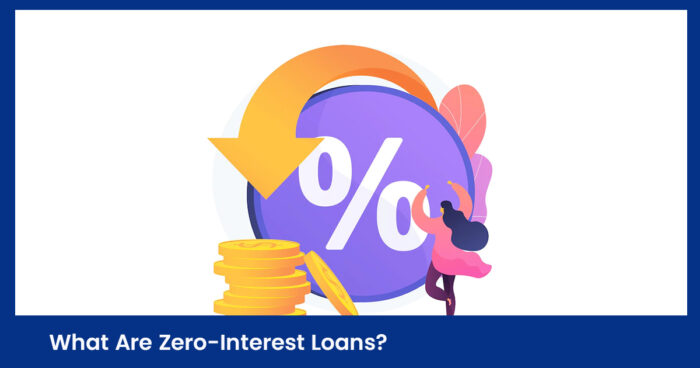What Are Zero-Interest Loans? Zero-interest loans, also called interest-free loans, allow you to borrow money and repay it without being charged any interest. This can help you save significantly compared to traditional personal loans and can also make it easier to plan how much you can afford to borrow.

These loans are often offered to encourage big purchases and can be a smart choice if you manage them well. Retailers and medical providers are common sources for these types of loans.
How Do Zero-Interest Loans Work?
While you won’t pay interest, these loans may still come with other costs, such as origination or repayment fees. Some are promotional and only interest-free for a set period. If you don’t repay the balance within that time, you could be charged interest and additional fees.
Like traditional loans, zero-interest loans provide a lump sum upfront and are repaid in installments. The key difference is that no interest is added. However, fees such as late payment charges may still apply.
Deferred-interest loans are a popular option. They do not charge interest for a fixed time. If the balance is paid off during this period, you avoid interest completely. If not, you might have to pay interest from the start date of the loan.
Credit cards often offer similar features with a grace period where no interest is charged. Once that period ends, interest begins to apply to the unpaid balance. It’s important to read the terms carefully to understand all charges and deadlines.
Where Can You Get Zero-Interest Loans?
These loans are less common through traditional banks, but you can still find options. Some schools offer interest-free loans to students facing financial challenges. Nonprofit groups, such as the Jewish Free Loan Association, also provide interest-free loans for needs like healthcare or emergencies.
Online retailers may offer buy now, pay later services through platforms like Affirm or Sezzle, allowing you to split your payments with no interest.
Some cash advance apps, including EarnIn, Chime, or MoneyLion, offer short-term loans without interest. These usually require proof of income and are a good alternative to expensive payday loans.
Do You Need Good Credit for a Zero-Interest Loan?
It depends on the type of loan and the lender. If you’re applying for a no-interest auto loan, dealerships often require excellent credit.
Some zero-interest loans are available to borrowers with average or poor credit, especially when offered by nonprofits or schools. In some cases, a credit check may be required.
Pros and Cons of Zero-Interest Loans
Pros:
- No interest means you save more money overall.
- All your payments go directly toward the loan amount.
- Some lenders base eligibility on financial need rather than credit score.
Cons:
- These loans are not easy to find.
- Some lenders may charge high fees despite not charging interest.
- You may need excellent credit to qualify.
How to Get a Zero-Interest Loan
If you’re interested in a zero-interest loan, start by researching lenders and available programs. Make sure you understand their eligibility requirements.
For example, some schools only offer these loans to students with documented financial emergencies. Others may limit the amount or restrict how the loan can be used.
Once you’ve found options that fit your needs, compare them based on fees, loan terms, and repayment schedules. If the offer is deferred-interest, confirm how long you have to pay off the balance to avoid extra charges.
Steps to Apply for a Zero-Interest Loan
- Research and compare lenders based on your needs.
- Check your credit score to know where you stand.
- Reduce your loan amount or pay off existing debts if needed.
- Gather documents such as pay stubs, ID, and bank statements.
- Follow the application process and provide accurate information.
- Once approved, the loan will be deposited in your account.
Set up automatic payments to stay on track with repayments. If a zero-interest loan isn’t right for you, consider other options like grants, personal savings, or low-interest loans.



